Your mental health and Omega-3s. Kathleen Kendall-Tackett, PhD, IBCLC, FAPA examines whether fats can make you happy.
Becoming a mother can be wonderful—and highly stressful. Sleepless nights, breastfeeding difficulties, a history of abuse or trauma, low partner support, or a baby with health problems are all stressors that can put you at risk for depression. Fortunately, there are some steps that you can take to help you cope.
You are what you eat: Fatty acids and depression
Does it seem like more and more people you know are depressed? You’re not imagining things. Depression is on the rise. And much of this increase is due to what we eat. Over the last century, we’ve increased the amount of Omega-6 fatty acids in our diets, while simultaneously decreasing the amount of Omega-3s. Omega-6s are found in vegetable oils, such as corn and safflower oils, and are a staple of many processed foods. Omega-3 fatty acids are polyunsaturated fats found in plant and marine sources, and most women in industrialized countries are deficient in them (Kiecolt-Glaser, Belury, Porter, Beversdorf, Lemeshow, & Glaser, 2007). As a result, we are at risk for a whole host of problems—including depression. And pregnant and postpartum women are especially vulnerable.
Inflammation in pregnant and postpartum women
This change to our diet by eating processed foods does bad things to our bodies. While we need some Omega-6s, most Americans and others in industrialized nations get way too many. And excessive Omega-6s increase inflammation (Kiecolt-Glaser et al., 2007), which increases risk of depression (Robles, Glaser, & Kiecolt-Glaser, 2005). This is especially true for pregnant and postpartum women (Chong et al., 2015; Groer & Kendall-Tackett, 2011).
During the last trimester of pregnancy, inflammation levels naturally rise in anticipation of birth. These inflammatory cells have a good purpose: they help your body prepare for labor and also help you fight infection after your baby is born. In addition, normal postpartum stressors, like sleep deprivation, can raise inflammation levels. This is part of our normal stress response. But when combined with the changes associated with pregnancy and postpartum, inflammation levels can get too high.

Inflammation can potentially lead to another problem for pregnant women: preterm birth. In one study, women who were depressed during their pregnancies had more than double the risk of having a preterm baby (Dayan et al., 2006). Another found that women with both depression and posttraumatic stress disorder (PTSD) had four times the risk of preterm birth (Yonkers et al., 2014), and inflammation is the likely culprit (Coussons-Read, Okun, Schmitt, & Giese, 2005).
Your inflammation levels are more likely to be too high if you do not have enough Omega-3s in your diet. Most people maintain a sufficiency by eating fish. In countries where people eat between a pound and a pound and a half of seafood per week, men and women have significantly lower rates of major depression (Tanskanen et al., 2001), bipolar disorder (Noaghiul & Hibbeln, 2003), and even suicide (Sublette, Hibbeln, Galfalvy, Oquendo, & Mann, 2006) than in countries where people eat less than that amount. Fish consumption also impacted rates of postpartum depression in a study comparing rates of postpartum depression (PPD) in 22 countries (Hibbeln, 2002).

Omega-3s also lower inflammation by lowering the number of cells in our blood stream that cause it. These cells are known as proinflammatory cytokines. Researchers found that people with high levels of Omega-3s in their blood had low levels of inflammation. In contrast, people with low levels of Omega-3s had higher levels of inflammation (Chong et al., 2015; Ferrucci et al., 2006; Dehkordi, Noorbakhshnia, Ghaedi, Esmaeili, & Dabagh, 2015). Interestingly, when pregnant women who were at risk for preterm birth were given eggs enriched with an Omega-3 (docosahexaenoic acid or DHA), the length of their pregnancies increased by an average of six days (Smuts et al., 2003). Another study found that using a high dose of DHA during pregnancy (800 mg) increased gestation length to the point where many women in the study went past their due dates (Makrides, Gibson, & McPhee, 2010). For these women, lengthening their pregnancies beyond their due dates was not ideal. But for women at risk for preterm infants, high doses of DHA during pregnancy could make a significant difference.
Pregnant and postpartum women in most industrialized countries are especially likely to be deficient in Omega-3s because babies need these fatty acids for their developing nervous systems and have depleted their mothers’ stores. Writing about mothers in Australia, Rees and colleagues (2005) observed that babies need about 67 mg a day of DHA for their development, but Australian mothers were consuming about 15 mg a day—well under what was required. In contrast, mothers from countries, such as Japan, Korea, or Norway, where fish consumption is naturally high, consume about 1,000 mg/day of DHA. When mothers are deficient, their bodies will divert their stores of DHA to their babies while they are pregnant. But as a result, mothers’ stores become more depleted with each pregnancy, further increasing their risk of depression (Freeman et al., 2006a; Kendall-Tackett, 2010; McNamara, 2009).

Eicosapentaenoic acid (EPA) and docosahexaenoic acid (DHA) and depression: How can you get more Omega-3s in your diet?
Go into any well-stocked supermarket and you will see a dizzying array of foods that are fortified with Omega-3s: eggs, cereal, soy milk, snack bars, orange juice. It seems to be today’s new “super supplement.” With regard to depression, Omega-3s are not all created equal. If you are interested in Omega-3s for depression, it’s important to know what you are buying. Many products that list Omega-3s contain alpha-linolenic acid (ALA). ALA is the Omega-3 found in flaxseed, walnuts, and other plant sources. It is an essential fatty acid and is beneficial to cardiovascular health. But it is not effective in either the prevention or treatment of depression (Kendall-Tackett, 2017). If you want the antidepressant effects of Omega-3s, you must look for foods or supplements containing the long-chain Omega-3 fatty acids: EPA and DHA.
Supplements
Fortunately, there are many sources of EPA/DHA that are safe to take while pregnant and while breastfeeding. In fact, I recommend supplements over eating fish in this case because it is impossible for consumers to tell whether fish contains contaminants. Supplements, in contrast, are specifically tested for them.
Some supplements contain DHA alone, which can help prevent depression. Fish-oil supplements contain both EPA and DHA and have been used to treat depression, sometimes in conjunction with medications. If used with medications, they boost the effectiveness of the medications. Sources of both pharmaceutical grade and over-the-counter fish-oil products verified by the U.S. Pharmacopeia (www.USP.org) are widely available. Be sure to discuss any supplements you take, including Omega-3s, with your health care provider as they can potentially interact with a small number of prescription medications.
In summary, long-chain Omega-3 fatty acids can have a major impact on your mental health. If you make Omega-3s part of your daily diet, you may well discover what many others have learned: that the right kind of fat can indeed make you happy—and help you cope with the stresses and strains of new motherhood.
Recommended dosages
Currently 200–400 mg minimum DHA for prevention of depression. This recommended amount may prove to be on the low side, but 200 mg is the bare minimum. In cultures where women eat a lot of fish, the average DHA that they consume is 1,000 mg/day.
1,000 mg EPA for treatment of depression
U.S. Food and Drug Administration generally recommended as safe (GRAS) levels: 3,000 mg DHA/EPA
References
 Chong, M. F. F., Ong, Y.-L., Calder, P. C., Colega, M., Wong, J. X. Y., … Chen, H. (2015). Long-chain polyunsaturated fatty acid status during pregnancy and maternal mental health in pregnancy and the postpartum period. The Journal of Clinical Psychiatry, e848–e856. doi:10.4088/jcp.14m09191
Chong, M. F. F., Ong, Y.-L., Calder, P. C., Colega, M., Wong, J. X. Y., … Chen, H. (2015). Long-chain polyunsaturated fatty acid status during pregnancy and maternal mental health in pregnancy and the postpartum period. The Journal of Clinical Psychiatry, e848–e856. doi:10.4088/jcp.14m09191
Coussons-Read, M. E., Okun, M. L., Schmitt, M. P., & Giese, S. (2005). Prenatal stress alters cytokine levels in a manner that may endanger human pregnancy. Psychosomatic Medicine, 67(4), 625–631. doi:10.1097/01.psy.0000170331.74960.ad
Dayan, J., Creveuil, C., Marks, M. N., Conroy, S., Herlicoviez, M., Dreyfus, M., & Tordjman, S. (2006). Prenatal depression, prenatal anxiety, and spontaneous preterm birth: A prospective cohort study among women with early and regular care. Psychosomatic Medicine, 68(6), 938–946. doi:10.1097/01.psy.0000244025.20549.bd
Dehkordi, N. G., Noorbakhshnia, M., Ghaedi, K., Esmaeili, A., & Dabaghi, M. (2015). Omega-3 fatty acids prevent LPS-induced passive avoidance learning and memory and CaMKII-α gene expression impairments in hippocampus of rat. Pharmacological Reports, 67(2), 370–375. doi:10.1016/j.pharep.2014.10.014
Ferrucci, L., Cherubini, A., Bandinelli, S., Bartali, B., Corsi, A., Lauretani, F., … Guralnik, J. M. (2006). Relationship of plasma polyunsaturated fatty acids to circulating inflammatory markers. The Journal of Clinical Endocrinology & Metabolism, 91(2), 439–446. doi:10.1210/jc.2005-1303
Freeman, M. P., Hibbeln, J. R., Wisner, K. L., Davis, J. M., Mischoulon, D., Peet, M., … Stoll, A. L. (2006). Omega-3 fatty acids: Evidence basis for treatment and future research in psychiatry. The Journal of Clinical Psychiatry, 67(12), 1954–1967. doi:10.4088/jcp.v67n1217
Groer, M. W., & Kendall-Tackett, K. A. (2011). How breastfeeding protects women’s health throughout the lifespan: The psychoneuroimmunology of human lactation. Amarillo, TX: Hale Publishing.
Hibbeln, J. R. (2002). Seafood consumption, the DHA content of mothers’ milk and prevalence rates of postpartum depression: a cross-national, ecological analysis. Journal of Affective Disorders, 69(1-3), 15–29. doi:10.1016/s0165-0327(01)00374-3
Kendall-Tackett, K. A. (2010). Long-chain omega-3 fatty acids and women’s mental health in the perinatal period. Journal of Midwifery and Women’s Health, 55(6), 561–567.
Kendall-Tackett, K. A. (2017). Depression in new mothers, 3rd Edition. Abington, UK: Routledge.
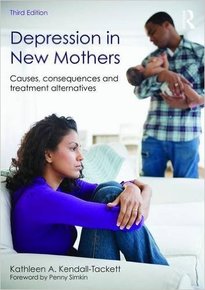
Kiecolt-Glaser, J. K., Belury, M. A., Porter, K., Beversdorf, D. Q., Lemeshow, S., & Glaser, R. (2007). Depressive symptoms, omega-6:omega-3 fatty acids, and inflammation in older adults. Psychosomatic Medicine, 69(3), 217–224. doi:10.1097/psy.0b013e3180313a45
Makrides, M., Gibson, R. A., McPhee, A. J., Yelland, L., Quinlivan, J., Ryan, P., & DOMInO Investigative Team, and the. (2010). Effect of DHA supplementation during pregnancy on maternal depression and neurodevelopment of young children. JAMA, 304(15), 1675. doi:10.1001/jama.2010.1507
McNamara, R. K. (2009). Evaluation of docosahexaenoic acid deficiency as a preventable risk factor for recurrent affective disorders: Current status, future directions, and dietary recommendations. Prostaglandins, Leukotrienes and Essential Fatty Acids, 81(2-3), 223–231. doi:10.1016/j.plefa.2009.05.017

Noaghiul, S., & Hibbeln, J. R. (2003). Cross-national comparisons of seafood consumption and rates of bipolar disorders. American Journal of Psychiatry, 160(12), 2222–2227. doi:10.1176/appi.ajp.160.12.2222
Rees, A.-M., Austin, M.-P., & Parker, G. (2005). Role of omega-3 fatty acids as a treatment for depression in the perinatal period. Australian and New Zealand Journal of Psychiatry, 39(4), 274–280. doi:10.1111/j.1440-1614.2005.01565.x
Robles, T. F., Glaser, R., & Kiecolt-Glaser, J. K. (2005). Out of balance. Current Directions in Psychological Science, 14(2), 111–115. doi:10.1111/j.0963-7214.2005.00345.x
Smuts, C. M., Huang, M., Mundy, D., Plasse, T., Major, S., & Carlson, S. E. (2003). A randomized trial of docosahexaenoic acid supplementation during the third trimester of pregnancy. Obstetrics & Gynecology, 101(3), 469–479. doi:10.1097/00006250-200303000-00011
Sublette, M. E., Hibbeln, J. R., Galfalvy, H., Oquendo, M. A., & Mann, J. J. (2006). Omega-3 polyunsaturated essential fatty acid status as a predictor of future suicide risk. American Journal of Psychiatry, 163(6), 1100–1102. doi:10.1176/ajp.2006.163.6.1100
Tanskanen, A., Hibbeln, J. R., Tuomilehto, J., Uutela, A., Haukkala, A., Viinamäki, H., … Vartiainen, E. (2001). Fish consumption and depressive symptoms in the general population in Finland. Psychiatric Services, 52(4), 529–531. doi:10.1176/appi.ps.52.4.529
Yonkers, K. A., Smith, M. V., Forray, A., Epperson, C. N., Costello, D., Lin, H., & Belanger, K. (2014). Pregnant women with posttraumatic stress disorder and risk of preterm birth. JAMA Psychiatry, 71(8), 897. doi:10.1001/jamapsychiatry.2014.558
Kathleen Kendall-Tackett, PhD, IBCLC, FAPA

Dr. Kendall-Tackett is a health psychologist and International Board Certified Lactation Consultant, and the owner and Editor-in-Chief of Praeclarus Press, a small press specializing in women’s health. She is Editor-in-Chief of two peer-reviewed journals: Clinical Lactation and Psychological Trauma. She is Fellow of the American Psychological Association in Health and Trauma Psychology, Past President of the APA Division of Trauma Psychology, and a member of the Board for the Advancement of Psychology in the Public Interest. Dr. Kendall-Tackett specializes in women’s-health research including breastfeeding, depression, trauma, and health psychology, and has won many awards for her work including the 2016 Outstanding Service to the Field of Trauma Psychology from the American Psychological Association’s Division 56.
Dr. Kendall-Tackett has authored more than 400 articles or chapters, and has just completed her 35th book, The Phantom of the Opera: A Social History of the World’s Most Popular Musical. Her most recent books include: Depression in New Mothers, 3rd Edition (2016, Routledge UK, in press), Women’s Mental Health Across the Lifespan (2016, Routledge US, in press, with Lesia Ruglass), Psychology of Trauma 101 (2015, Springer, with Lesia Ruglass) and The Science of Mother-Infant Sleep (2014, Praeclarus, with Wendy Middlemiss). Her websites are:




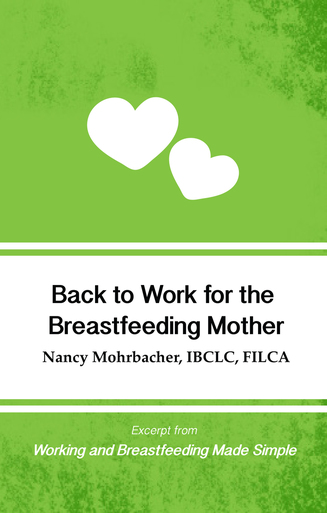
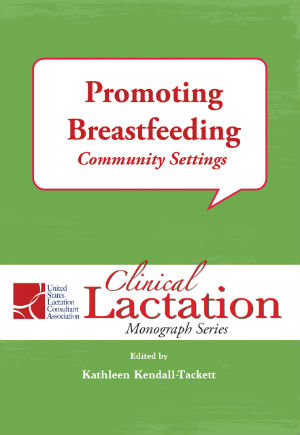
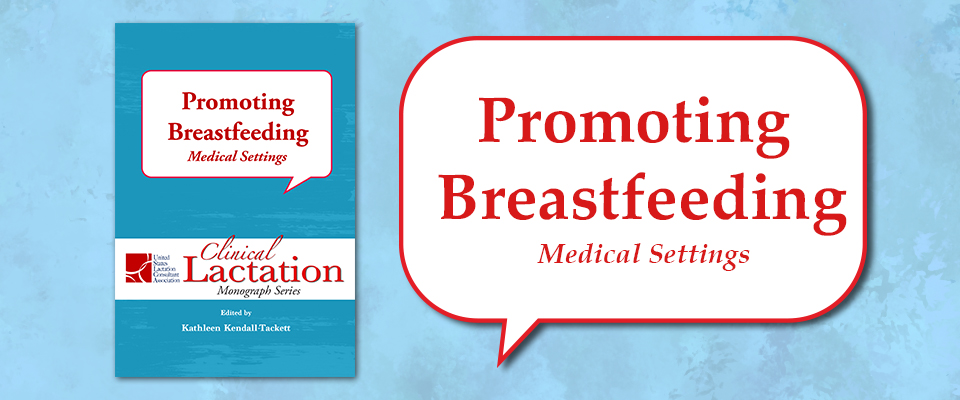


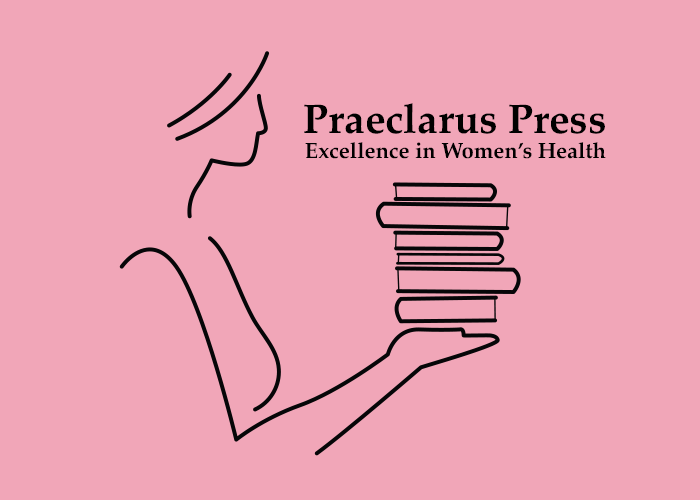



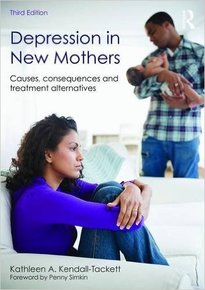


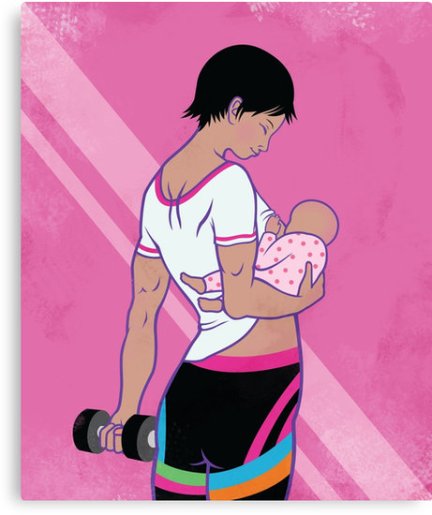






Leave a comment